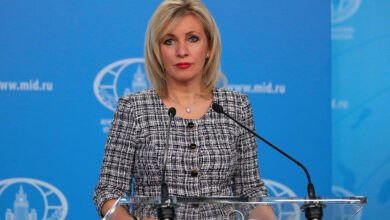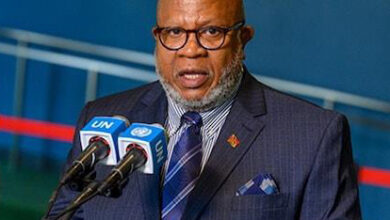Energy Security, Terror and Trade Move India to SCO
New Delhi. At the 45-minute long meeting with Vladimir Putin on the afternoon of June 24, his last official engagement before he left Tashkent, Prime Minister Narendra Modi expressed thanks to the Russian President for his support in getting India into the Shanghai Cooperation Organisation (SCO).

India was formally admitted to the Shanghai Cooperation Organisation (SCO) in Tashkent June 24, after signing the base agreement called the Memorandum of Obligations.
India, along with Pakistan, was formally accepted as a new member at the Ufa summit of the SCO in July last year (2015), when Russia was chairing the SCO. Having signed the Memorandum of Obligations, a mandatory requirement by which New Delhi accepted all the obligations by which the other member countries of the SCO abide, India is now a member. During the course of the year, before the next Summit in Astana, Kazakhstan, India (and Pakistan) will sign around 30 more instruments of accession in various sectors of cooperation and attend the 2017 summit as full members.
“India is glad to be a member of the SCO and looks forward to fruitful outcomes particularly in the field of economic cooperation through SCO,” Modi said on his official Twitter account. “Cooperation with Central Asia is of great importance for India,” he added.
Being part of the SCO has been a critical Indian foreign policy objective, sources told India Strategic. A host of benefits are likely to accrue, from improved connectivity and infrastructure with Central Asia and Russia being paramount. Also, combating terrorism and the spread of lethal groups like ISIS and Al-Qaeda would get a boost from closer cooperation with this region. Additionally, India’s access to Afghanistan would stand to improve.
In his address to the SCO leaders, the Indian Prime Minister said, “India is not new to the region. Our historic linkages with you are centuries old. And, it is not just geography that connects us. Our societies have been enriched by links of culture, cuisine and commerce. They form the bed rock of our modern day relationships with Russia, China and the countries of Central Asia,” Modi said.
During their meeting, President Putin told the Indian Prime Minister that India is a special and privileged partner and that there is long standing friendship between Russia and India. He welcomed India signing the Memorandum of Obligations of SCO.
India’s entry to the SCO in 2017 would lead to even “closer Russian-Indian cooperation”, President Putin said. “This will provide us with an opportunity for closer work with our Indian friends, now at the floor of the Shanghai Cooperation Organisation,” the Russian President said.
The two leaders discussed cooperation in civil nuclear energy, partnership in the gas and petrochemicals sector. They also discussed how to take their cooperation in the space sector ahead, an Indian government spokesman said. Regional issues were discussed, particularly the situation in Syria and Afghanistan, sources told India Strategic. Both leaders expressed the view that the violence had to be curbed and the spread of the terrorist influence in the region halted.
Both leaders also spoke of “age old cultural linkages” and agreed to find ways of further invigorating cultural and people to people ties.
Cultural linkages are among the factors that bind the SCO together. For India, Central Asia is a part of the extended neighbourhood. Increased connectivity with the region will improve trade linkages, certainly, but also improve anti-terror cooperation and enhance India’s energy security, since four of the Central Asian SCO members and Russia are energy resource rich.
“The SCO is a group which brings together countries of our extended neighbourhood. We have been working with other SCO members in several fields. We have been talking to them in working groups relating to trade, transport, culture and terrorism and so on and we hope that our engagement in these areas will intensify through this,” said Sujata Mehta, Secretary (West) in the Ministry of External Affairs.
“The SCO is a major group in terms of countries that have a huge potential in terms of energy. In fact, there is a talk of an SCO energy club emerging so we will wait and see how that develops,” said Mehta.
Asked about areas of cooperation within the SCO, Mehta said, “Cooperation in the area of security is part of the subject matter of the SCO…All countries which are members SCO cooperate with each other. In fact there is a regional anti-terror mechanism that is formally established within the SCO, and we too will be part of that,” she said.
India also borders China, one of the founding members of the Organisation. However, it was Russia’s insistence that brought India into the SCO. China was not keen unless Pakistan also was allowed in as a member.
The presidency of the SCO passed in 2016 from Russia to Uzbekistan. Regional security and the issues of economic cooperation are among the priorities of SCO, a political, economic and military alliance, founded in 2001, that includes Russia, China, Kazakhstan, Kyrgyzstan, Tajikistan and Uzbekistan.
India and Pakistan, which enjoyed Observer status in the organisation since 2005, will come on board as full members from the next summit in 2017.
Earlier, in an interview with the Chinese news agency Xinhua, President Putin said the admission of India and Pakistan to the Shanghai Cooperation Organization will make the SCO a more powerful, influential and popular association in the region and worldwide.
“Indeed, as the Shanghai Cooperation Organisation expands its areas of operation and its membership through the participation of the powerful countries I have just mentioned [India and Pakistan], it turns into a very powerful international association that commands respect and is relevant both in the region and worldwide,” Putin said in an interview with Xinhua news agency, prior to his visit to China. He travelled to China from Uzbekistan, after the SCO summit.
“At the summit held last year in Ufa, Russia, we decided to admit to the SCO another two states, India and Pakistan. We are to formalise this decision at the Tashkent meeting [on June 24],” the Russian President said.
“The international environment is complicated and multifaceted, and issues are not resolved by the mere fact that countries with different approaches to and views on various international challenges join our Organisation. However, as we expect, their accession does create conditions for the issues to be resolved,” Putin told Xinhua.





